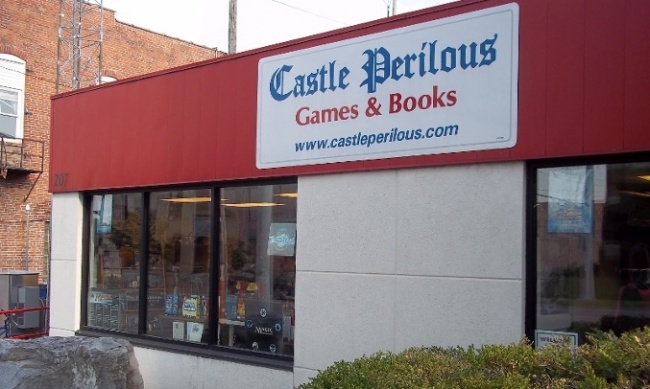Rolling for Initiative is a weekly column by Scott Thorne, PhD, owner of Castle Perilous Games & Books in Carbondale, Illinois and instructor in marketing at Southeast Missouri State University. This week, Thorne takes a look at Minimum Advertised Pricing (MAP).
When you get a group of game retailers together, sooner or later the topic of MAP (minimum advertised pricing) and its enforcement, or lack thereof, will come up. For those not familiar with the term, Minimum Advertised Pricing is the term for a policy put in place by many, but not all, manufacturers stating that, in exchange for the manufacturer allowing the retailer to be an official reseller of the product, with any benefits and access to product that may entail, the retailer agrees to not advertise a discount of more than a certain amount on those products specified by the manufacturer. For example, both Mayfair Games and Games Workshop have MAP policies in place. If a store wants to have access to their products, either directly from the company or through approved distributors, the store must agree to become an authorized reseller and abide by company policies, one of which is a MAP of 20% for both companies. What this means, and it is much more important online than at a brick and mortar store since online retailers compete much more heavily on price, is that an authorized reseller of Mayfair Games or Games Workshop products cannot advertise their products for more than a 20% discount, i.e. an approved store selling Games Workshop products could not advertise a $50 boxed set for less than $40 or risk losing the ability to order products directly from Games Workshop at a larger discount than they get if buying GW product from other sources.
This is why MAP is often a sore point with many retailers since they see online retailers, especially, selling ostensibly MAP protected products at a greater discount than the MAP allows, apparently with no repercussions. Someone will spot an online retailer selling a MAP protected boardgame for less than the MAP, violating the policy, report it to the manufacturer and, as far as they can tell, see nothing happen. That is why this article in the May issue of Internet Retailer caught my eye (I read Internet Retailer regularly, you can too and it is free at www.internetretailer.com).
Why do manufacturers even care about for how much stores sell their products? Price is part of the brand image. Consider Nike. Nike routinely launches new shoes a prices between $100 to $200. If you have stores regularly selling a $100 shoe for $50, it becomes hard to convince consumers the shoe is worth over $100. Similarly, if a publisher prices a boardgame at $80 but has online stores selling it for $60, the customer starts seeing it as worth only $60, a 25% discount off the MSRP (manufacturer’s suggested retail price) and will expect similar releases priced at 25% off. Manufacturers need to make a profit too and aggressive discounting drives down the perceived value of their products.
A MAP can be tricky for a manufacturer to establish if not written properly, it could be construed as restraint of trade and vertical price fixing, both of which are illegal in the U.S. If you get time, read over the Internet Retailer article I linked above and, next week, I will discuss why MAP can be so hard to enforce.
The opinions expressed in this column are solely those of the writer, and do not necessarily reflect the views of the editorial staff of ICv2.com.

Column by Scott Thorne
Posted by Scott Thorne on May 22, 2017 @ 2:15 am CT
MORE GAMES
For 'Cosmere Roleplaying Game'
August 13, 2025
Brotherwise Games will be launching the Cosmere Roleplaying Game: Stormlight series.
New Set Features Lots of Allies and Humans
August 13, 2025
Wizards of the Coast revealed details on Magic: The Gathering - Avatar: The Last Airbender .
MORE COLUMNS
Column by Scott Thorne
August 11, 2025
This week, columnist Scott Thorne notes a new twist in the Diamond Comic Distributors saga and shares his thoughts on the Gen Con releases that will make the biggest impacts.
Column by Jeffrey Dohm-Sanchez
August 7, 2025
ICv2 Managing Editor Jeffrey Dohm-Sanchez lays out the hotness of Gen Con 2025.








